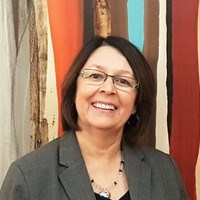Métis Nation B.C. is urging the province to set up a hotline for health-care workers or members of the public to report racism they experience or witness in the health system.
Clara Morin Dal Col, president of Métis Nation B.C., made the recommendation to Health Minister Adrian Dix during a meeting Sunday, two days after Dix revealed that the province is investigating allegations of staff in hospital emergency rooms playing a “game” to guess the blood-alcohol level of Indigenous patients. Dix did not say in which hospitals the game was allegedly played.
Former child and youth watchdog and retired judge Mary Ellen Turpel-Lafond is leading the investigation, which will look into the specific allegations as well as systemic racism in the health care system.
In a statement Sunday, Morin Dal Col said since the allegations were made public, she’s heard from numerous health care workers about how “they have witnessed racism first-hand, reported it to senior officials only to be told they were the problem. This can’t go on any longer.”
Morin Dal Col said a tip line would allow health care workers to report racism without fear of losing their jobs.
On Monday, Dix told the Times Colonist it’s too early to discuss measures such as a hotline.
Dix said he met with several Indigenous groups, including Indigenous members of health authority boards, representatives from the First Nations Health council and the First Nations Health Authority, over the weekend. There were a variety of suggestions brought to him about addressing systemic racism, so Dix said he’s taking a thoughtful approach to the dialogue.
“There were many suggestions that we have to review,” he said.
Advocacy groups that work with Indigenous people and people of colour have expressed concern that the individuals facing the allegations have not been suspended, but Dix said it’s important that Turpel-Lafond be able to complete her investigation before such action is taken.
“It’s very important that we pursue the facts and Mary Ellen Turpel-Lafond is going to pursue the facts … where they lead her and make her recommendations,” Dix said.
Morin Dal Col expressed support for the appointment of Turpel-Lafond, who was the first Indigenous person appointed to the judicial bench in Saskatchewan.
“It was agreed that the Métis Nation would be regularly consulted and updated regarding the investigation and that we would both work collaboratively to root out all racism within our health care system,” Morin Dal Col said. “While it is understood the report from Ms. Turpel-Lafond may take some time to produce, we must take action now to ensure that we end racism at our hospitals and medical facilities.”
Métis Nation B.C. represents more than 90,000 Métis people across the province.
Daniel Fontaine, the group’s CEO, brought the allegations to the deputy minister of health Thursday night after being made aware of allegations that emergency-room physicians, nurses and other staff regularly play a version of the TV game The Price is Right when predicting the blood-alcohol level of Indigenous patients, where the “winner” is the person whose guess is closest without going over.
The allegations were made by a health care worker who was participating in San’yas Indigenous cultural safety training, an online program aimed at building positive partnerships between service providers and Indigenous people.
Dix said Friday that if the allegations are true, the practice is “intolerable, unacceptable and racist and, of course, affected profoundly patient care.”
No health care workers have been suspended or fired.
A March 2019 report released by the San’yas training program detailed many incidents where First Nations, Métis and Inuit patients seeking emergency medical services in B.C. are assumed to be intoxicated and denied medical assessments, which contributes to worsening health conditions resulting in unnecessary harm or death.
Dix said it’s too early to say whether the San’yas cultural sensitivity training, which advises service providers on how to build respectful relationships with Indigenous people, will be made mandatory, which Métis Nation B.C. has called for.
More than 10,000 health care workers have taken the online training course already, he said.



